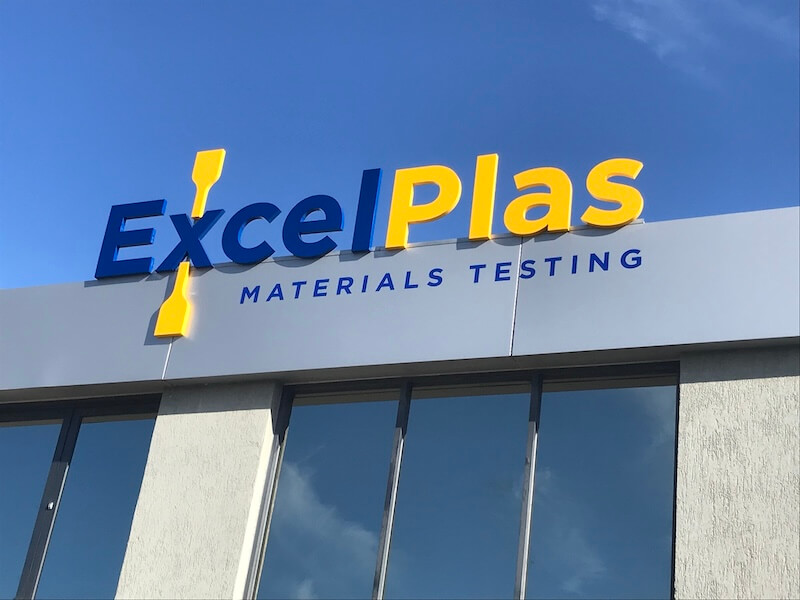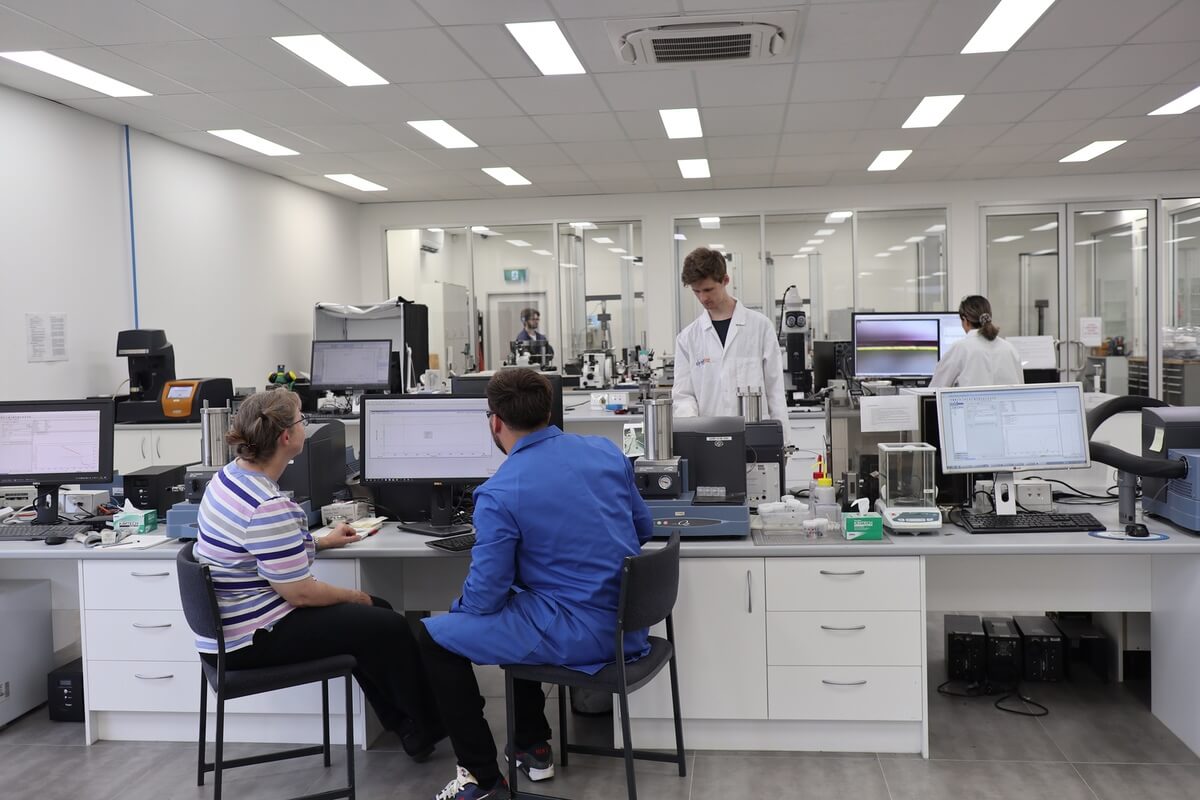Tap into ExcelPlas expertise
ExcelPlas has provided independent polymer testing services to the world's top organisations for over 30 years. Find out how we can help you.
ExcelPlas started as a small lab in Melbourne, Australia in 1994
We've provided testing services to over 500 returning customers
Our team has completed over twelve thousand laboratory jobs
Our cutting-edge lab is capable of testing over 150 types of polymers


Our Team
We boast a dynamic and expert team that is at the heart of our reputation as a leading polymer testing lab. The ExcelPlas team is dedicated to delivering precise and reliable results for a diverse range of materials and applications. Each team member brings a wealth of knowledge and a commitment to innovation and improvement, ensuring that ExcelPlas remains at the forefront of polymer science.
Leading the ExcelPlas team is Dr John Scheirs our director. John is a prominent figure in the field of polymer science, publishing work on a variety of key industry topics. His book ”Characterization and Failure Analysis of Polymers” is widely recognized as a key resource for polymer scientists, providing comprehensive coverage of polymer characterization techniques and their applications. He has also authored other influential books on polymer science, such as “Polymer Recycling: Science, Technology, and Applications.”
Dr. Scheirs’ work has been recognized by numerous scientific organizations, including the Royal Society of Chemistry, the Australian Academy of Science, and the American Chemical Society. He has also served on editorial boards of several leading scientific journals, including Polymer Degradation and Stability by Elsevier.
Dr. John Scheirs is a renowned scientist and researcher who has made significant contributions to the field of polymer science. He is best known for his work on the publication and patent record related to polymers and their properties.
Dr. Scheirs is also known for his extensive patent record related to polymer science. He has been granted several patents for his inventions and discoveries, including a patent for a new type of plastic that is biodegradable and environmentally friendly. This invention has the potential to revolutionize the plastic industry by reducing the environmental impact of plastic waste.
In addition to his scientific contributions, Dr. Scheirs has also been an active member of the scientific community, serving on several editorial boards and scientific committees. He has also been a mentor to many young scientists and has contributed significantly to the education and training of the next generation of polymer scientists.
Overall, Dr. John Scheirs’ publication and patent record is a testament to his outstanding contributions to the field of polymer science. His work has led to significant advances in the understanding of polymers and their properties, and his inventions have the potential to make a significant impact on the environment and the future of the plastic industry. His legacy as a scientist and a mentor will continue to inspire and guide future generations of polymer scientists.
Dr. Scheirs has an impressive patent record, with over 20 patents to his name. His patents cover a range of topics, including novel polymers and their applications, polymer recycling processes, and environmentally friendly plastics. His inventions have the potential to revolutionize the plastic industry by reducing the environmental impact of plastic waste.
Dr. John Scheirs’ publication and patent record is a testament to his outstanding contributions to the field of polymer science. His work has had a significant impact on the industry, leading to advancements in polymer characterization techniques and the development of innovative and environmentally beneficial polymer materials.
Further information on the publications and patents of Dr. John Scheirs can be found here:
Testing you can trust
Our expert team has completed over 13,000 rigorous polymer tests for clients across industries, all over the world.
Fully independent
Audit your products quality and durability with our independent lab ensuring unbiased and accurate results from industry experts.
30+ years experience
With 30 years under our belt, ExcelPlas provides unparalleled expertise.
World class testing facilities
Equipped with a wide range of instrumentation and expertise to back it up we provide reliable and efficient testing.
Trusted by the industry
ExcelPlas’ expertise has been utilised by billion-dollar industry players relying on ExcelPlas to make the important decisions.






























































Decades of expertise provided via industry newsletters
Published industry knowledge

Feedstock Recycling and Pyrolysis of Waste Plastics: Converting Waste Plastics into Diesel and Other Fuels
Comprehensive reference book on conversion of waste plastics into fuels: Feedstock Recycling and Pyrolysis of Waste Plastics: Converting Waste Plastics into Diesel and Other Fuels, by John Scheirs and Walter Kaminsky, Wiley Series in Polymer Science, 2006, 660 Pages, John Wiley & Sons, UK.
Pyrolysis is a recycling technique converting plastic waste into fuels, monomers, or other valuable materials by thermal and catalytic cracking processes. It allows the treatment of mixed, unwashed plastic wastes. For many years, research has been carried out on thermally converting waste plastics into useful hydrocarbons liquids such as crude oil and diesel fuel.

A Guide to Polymeric Geomembranes: A Practical Approach
New reference book on geomembranes and liners: A Guide to Polymeric Geomembranes; A Practical Approach, by John Scheirs, Wiley Series in Polymer Science, 2009, 572 Pages, John Wiley & Sons, UK.
The book gives an overview of geosynthetic polymers that comprise an important group of materials for lining landfills, mine leachate ponds and water containment facilities. It describes the different types of materials used for geomembranes as well as their properties, shortcomings and applications. Geomembrane survivability such as chemical exposure effects and quality control and quality assurance are also included.

Metallocene-based Polyolefins: Preparation, Properties, and Technology
Foremost reference book metallocene polyethylens and polypropylenes: Metallocene-Based Polyolefins; Preparation, Properties and Technology, by John Scheirs and Walter Kaminsky, Wiley Series in Polymer Science, 2006, 660 Pages, John Wiley & Sons, UK.
The book gives comprehensive coverage of all areas of metallocene technology: catalyst structure, comonomer incorporation, polymerization mechanisms and conditions, reactor configurations, special properties, rheological and processing behaviour, comparison with conventional polyolefins and fields of application.

Modern Styrenic Polymers: Polystyrenes and Styrenic Copolymers
John Scheirs is the coeditor of the foremost reference book on styrene polymers Modern Styrenic Polymers; Polystyrenes and Styrenic Copolymers,by John Scheirs and Duane Priddy, Wiley Series in Polymer Science February 2003, 792 Pages, John Wiley & Sons, UK.

Modern Polyesters: Chemistry and Technology of Polyesters and Copolyesters
Leading reference book on polyester polymers: Modern polyesters: chemistry and technology of polyesters and copolyesters, by John Scheirs & Timothy E. Long, Wiley Series in Polymer Science, 2006, 660 Pages, John Wiley & Sons, UK.
The book provides an overview of the family of polyester polymers which comprise an important group of plastics that span the range of commodity polymers to engineering resins. It describes the preparation, properties and applications of polyesters as well as details on polyester-based elastomers, biodegradable aliphatic polyester, liquid crystal polyesters and unsaturated polyesters for glass-reinforced composites.

Modern Fluoropolymers: High Performance Polymers for Diverse Applications
Foremost reference book on fluoropolymers Modern Fluoropolymers: High Performance Polymers for Diverse Applications, by John Scheirs, Wiley Series in Polymer Science, 1997, 660 Pages, John Wiley & Sons, UK.
Provides an overview of a comprehensive range of commercial fluoropolymers with an emphasis on structure/property behaviour and their diverse fields of application. Topics covered include: crystalline and amorphous fluoropolymers, fluoroelastomers, coatings, sealants, linings, electrical properties, surface properties, effects of radiation, chemical resistance and failure modes of fluoropolymers.

Polymer Recycling: Science, Technology and Applications
Leading reference book on plastics recycling: Polymer Recycling: Science, Technology and Applications, by John Scheirs, Wiley Series in Polymer Science, 1998, 572 Pages, John Wiley & Sons, UK.
The book describes technological advances in polymer recycling from the sorting stage through to recycling processes and end-use applications; provides an overview of state-of-the-art recycling techniques with current and potential applications The book emphasis on the recycling of automobile tyres, polyurethane foams, carpets, engineering plastics and fibre-reinforced composites, all of which had been previously thought to be hard to recycle.

Compositional and Failure Analysis of Polymers: A Practical Approach
Leading reference book Compositional and Failure Analysis of Polymers: A Practical Approach, by John Scheirs, Published by Wiley Series in Polymer Science 2000, 806 Pages, John Wiley & Sons, UK.
The book is a practical guide for polymer technologists, engineers and analysts in the plastics, composites and rubber fields, this title describes a range of techniques and strategies for compositional and failure analysis of polymeric materials and products. Numerous examples illustrate the application of analytical methods for solving commonly encountered problems in the polymer industry.




























